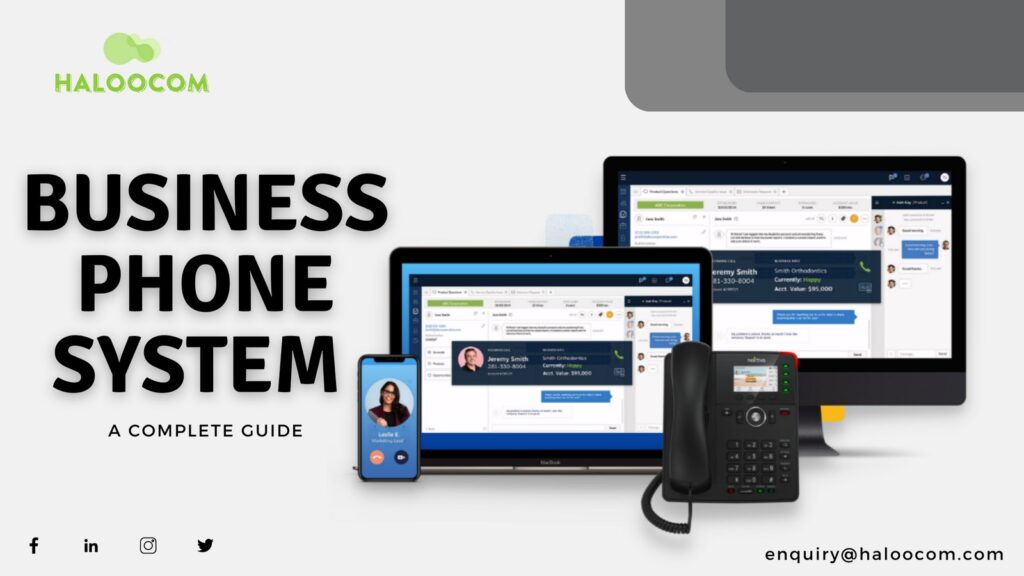Business phone systems are an essential tool for any company that wants to streamline its communication processes, improve customer service, and boost productivity. A business phone system is a network of phone lines and other communication tools that allows businesses to manage their phone calls, messages, and other communication channels efficiently. In this article, we will explore the different types of business phone systems, why businesses need them, how to choose the right one, and how much they cost.
What is a Business Phone System?
A business phone system is a communication network that allows businesses to manage their incoming and outgoing calls, messages, and other communication channels. Business phone systems can range from basic multi-line phone systems to more complex PBX (Private Branch Exchange) and VoIP (Voice over Internet Protocol) systems. Depending on the size and needs of your business, you may choose a specific type of phone system that fits your needs.
Different Types of Business Phone Systems
Multi-line Phone System:
A multi-line phone system is a basic phone system that allows multiple people to use the same phone line. A multi-line phone system typically has several phone lines that can be used simultaneously, allowing multiple calls to be made and received at the same time. Multi-line phone systems are affordable and easy to set up, making them a good choice for small businesses with basic communication needs.
PBX Phone System:
A PBX phone system is a more advanced phone system that uses a central switching system to manage incoming and outgoing calls. A PBX phone system can be used to manage multiple phone lines, extensions, and other communication channels. PBX systems can be on-premise, which means they are physically installed on your business premises, or cloud-hosted, which means they are hosted by a third-party provider.
VoIP Phone System:
A VoIP phone system is a phone system that uses the internet to transmit voice and data signals. VoIP systems can be used to manage multiple phone lines, extensions, and other communication channels. VoIP systems are becoming increasingly popular because they are affordable, flexible, and easy to use.
Why Do You Need a Business Telephone System?
There are several reasons why businesses need a telephone system. Firstly, a business phone system can help you manage your incoming and outgoing calls more efficiently. A business phone system can also improve your customer service by providing features like call forwarding, voicemail, and automated attendants. Additionally, a business phone system can help you save money on long-distance calls, reduce missed calls, and provide better call quality.
What Business Phone System Should You Choose?
When choosing a business phone system, there are several factors to consider. Firstly, you need to decide whether you want an on-premise or cloud-hosted phone system. On-premise phone systems are physically installed on your business premises, while cloud-hosted phone systems are hosted by a third-party provider. On-premise phone systems can provide more control and customization, but they require more maintenance and upfront costs. Cloud-hosted phone systems are more affordable and easy to use, but they provide less control and customization.
What Features Do You Want In Your Phone System?
When choosing a business phone system, it is essential to consider the features you need. Some of the most common features of a business phone system include call forwarding, voicemail, call recording, automated attendants, and conference calling. Additionally, you may want to consider features like video conferencing, SMS messaging, and integrations with other business tools like CRM software.
How Do You Select Your Provider?
When choosing a provider for your business phone system, it is essential to consider factors like reliability, scalability, support, and pricing. You should choose a provider that offers excellent customer support, a reliable network, and flexible pricing options. Additionally, you may want to consider providers that offer integrations with other business tools and services, such as CRM software, help desk software, and project management tools.
In conclusion, a business phone system is an essential tool for any company that wants to streamline its communication processes, improve customer service, and boost productivity. When choosing a business phone system, it is essential to consider factors like the type of system, the features you need, the provider you select, and the cost of the system. By carefully selecting the right business phone system, you can help your business to communicate more efficiently and effectively, and ultimately achieve your business goals.





